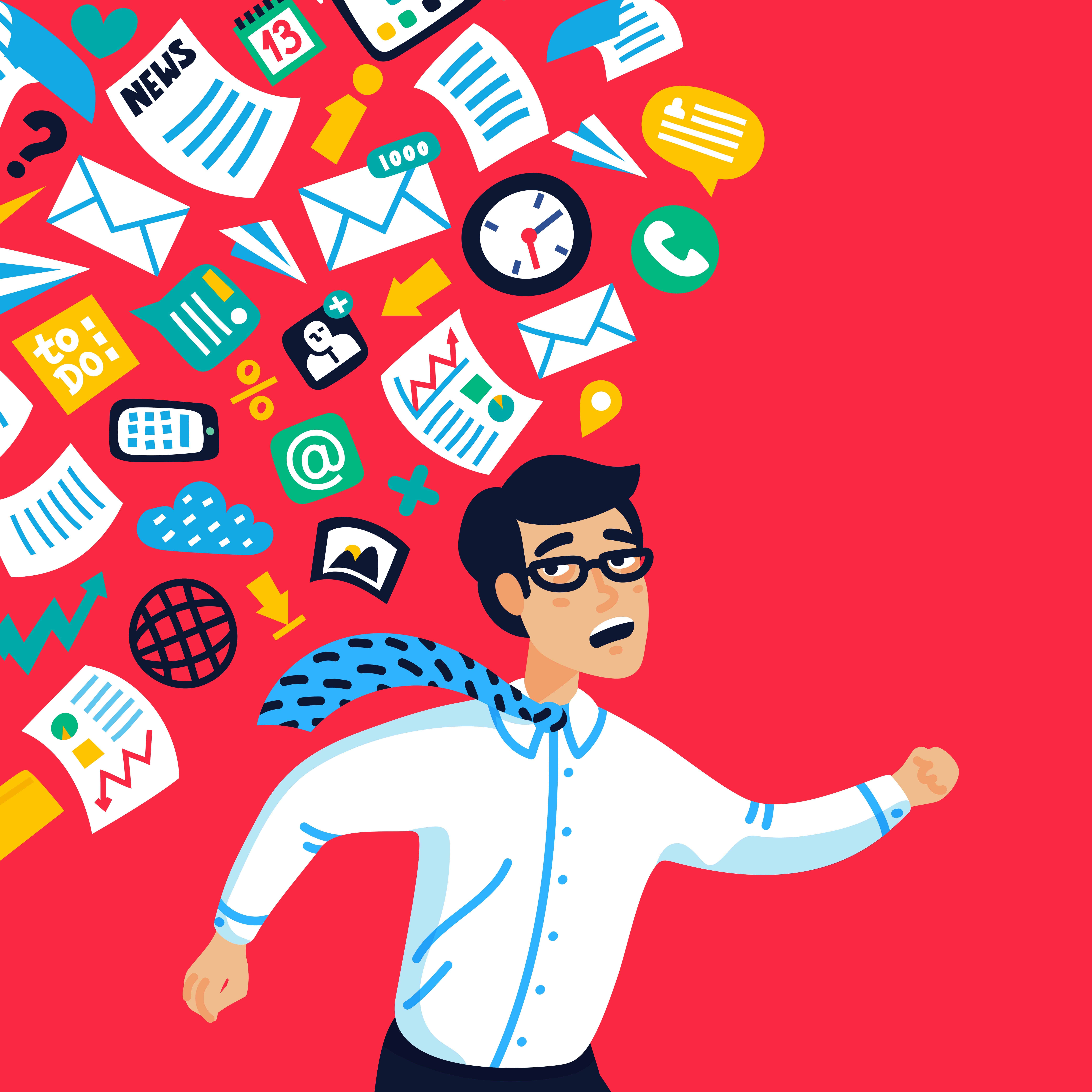A few years ago, in his book The Four-Hour Workweek, entrepreneur Tim Ferriss introduced an innovative concept called the “low-information diet.” The concept is to limit one’s intake of unnecessary information to free up time and brainpower to be more productive. In his words:
“Just as modern man consumes both too many calories and calories of no nutritional value, information workers eat data both in excess and from the wrong sources.”
Ferriss conceived this idea in the context of business productivity, but the idea holds value in the area of mental health, as well. In fact, regulating one’s intake of excess information “calories” can help reduce stress, calm the mind, and possibly increase the effectiveness of therapy.
Understanding the Problem
If you feel like your daily dose of news is giving you increased anxiety, you’re probably not wrong. Given today’s volatile political climate, the American Psychological Association says 2/3rd of Americans have reported increased stress about the future of the nation, egged on by the 24-hour news cycle. A poll last year by the American Psychiatric Association revealed 40 percent of Americans felt more anxious than in the year before—with 56 percent of those people citing politics as a primary trigger.
But the news, such as it is, comprises only a fraction of our current information overload. The Internet reportedly produces 2.5 quintillion bytes of data every day, and Americans consume more than 2.6 million gigabytes of Internet data every minute—much of it in the form of bloated social media feeds that fill our brains with information that is mostly irrelevant.
You don’t have to be a mental health expert to realize that for someone suffering from anxiety, depression, schizophrenia, or other mental health issues, this bombardment of information can’t be helpful. When our minds already feel weighted by negative emotions, anxiety and overstimulation the added noise only makes things worse. Conversely, anything we can do to reduce that noise makes mental health issues easier to manage.
How a Low Information Diet Works
The idea of a complete “digital detox” sounds appealing, but it’s not feasible for everyone, and sometimes news alerts can even save your life (for example, a warning to take shelter from a bad storm). Rather, a low-information diet is about restricting information to the essentials, or to information that is truly relevant and helpful to your life.
The “diet” metaphor completely works here. A healthy food diet involves eliminating sources of unnecessary calories and focusing on good ones. You don’t stop eating—you just eat better. By the same token, a healthy information diet eliminates unnecessary information that only serves to distract and scatter your brain power, and encourages you to focus on the information that actually helps.
How Can a Low-Information Diet Promote Mental Health?
From our perspective, regulating one’s intake of information comes with a wide range of potential mental health benefits. For example:
- Reduced levels of anxiety (and removal of many anxiety triggers)
- Reduced depression (studies have confirmed a link between depression and excessive social media usage)
- Improved focus (by reducing the distractions of useless information, or information coming to you at the wrong times)
- Calming an overactive mind (by reducing sources of stimulus)
- Improved sleep (especially by avoiding using your computer and devices before bedtime)
Looking For Therapy?
Start Healing Today.
212-960-8626
Tips for Embracing a Low-Information Diet
- Start with a detox.
Tim Ferris recommends a five-day “cold turkey” approach to start a low-information diet – and we approve. For the first five days, try avoiding almost all newspapers, TV, Internet and social media. Limit yourself to 5 minutes checking newsfeeds at lunch. You can watch an hour of television for pleasure in the evening and/or read fiction for an hour before bed, but beyond that, no input. (Think of this exercise as a “cleanse” before your actual diet kicks in.)
- Clean your social media feed.
Many of us feel pressured to increase our social media following by following others. This often results in a lot of excess posts that clutter your feed. Go through and limit your following only to those people who are posting things that matter to you. That way, your time online gives you information you need without bombarding you.
- Set limits on your time online.
Many of us stop to scour social media and news feeds anytime there’s a lull in our daily activity. Break this habit by making your Internet activity purposeful—no more than 1 or 2 set times per day for a few minutes at a time.
- Avoid news sources that increase your anxiety.
Again, we’re not asking you to bury your head in the sand, but if you’re dealing with mental health issues, your mental health
comes first.
Tips for Embracing a Low-Information Diet
How do you begin combating information overload? The process may look different for each person—but the following recommendations may help.
- Start with a detox. Tim Ferris recommends a five-day “cold turkey” approach to start a low-information diet – and we approve. For the first five days, try avoiding almost all newspapers, TV, Internet and social media. Limit yourself to 5 minutes checking newsfeeds at lunch. You can watch an hour of television for pleasure in the evening and/or read fiction for an hour before bed, but beyond that, no input. (Think of this exercise as a “cleanse” before your actual diet kicks in.)
- Clean your social media feed. Many of us feel pressured to increase our social media following by following others. This often results in a lot of excess posts that clutter your feed. Go through and limit your following only to those people who are posting things that matter to you. That way, your time online gives you information you need without bombarding you.
- Set limits on your time online. Many of us stop to scour social media and news feeds anytime there’s a lull in our daily activity. Break this habit by making your Internet activity purposeful—no more than 1 or 2 set times per day for a few minutes at a time.
- Avoid news sources that increase your anxiety. Again, we’re not asking you to bury your head in the sand, but if you’re dealing with mental health issues, your mental health
comes first.
Our minds are designed to process information and make decisions about it, and it’s perfectly healthy to be hungry to learn new things. But never in history have we been bombarded with this much information at once. The overload can be a hindrance to those striving to achieve better mental health. Begin disciplining your intake habits and watch your outlook improve.
Start Your Healing Journey Today!
Our compassionate and skilled therapists at Manhattan Mental Health Counseling are ready to help you explore the depths of your emotional well-being. We prioritize easy access for our clients and accept a wide range of insurance plans.
Can’t make it into our office for in-person appointments? No problem. We are more than happy to provide online sessions in the comfort of your own home.
Contact us today by calling 212-960-8626 or by filling out our online contact form.

